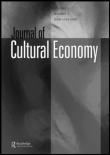
Abstract
In this essay, the author analyzes social science thinking about the capitalist market from instrumentalism to institutionalism and the recent turn toward more cultural economics, and propose to enlarge the latter opening via the ‘strong program’ in cultural sociology. Nineteenth century’ big thinkers’ conceptualized the market as if it were entirely deracinated, based on alienation and pure calculation. The profession of economics subtracted the social critique from this dismal understanding and converted the dismal science into mathematical predictions and production functions. The new economic sociology exposed the institutional framework of market decisions, emphasizing social networks and status competition. Cultural economic sociology has challenged institutionalism, showing how social meanings, not just institutional position, determines economic value. The next step is to demonstrate that the market itself depends on cultural meanings. The strength of a market depends upon narrative projections of future economic conditions. An optimistic scenario creates confidence and sparks investment. A pessimistic narrative creates fear and leads investors keep their money tight. Confidence in the future depends on constructions of ‘character’: will economic actors constrain themselves by acting in a sober and moral way or will they be hedonistic, indulging in short-term satisfaction? This cultural-sociological theory is illustrated with reference to Keynes’ General Theory about the 1930s Great Depression and U.S. Federal Reserve chairman Ben Bernanke’s policy vis-à-vis the current Great Recession.